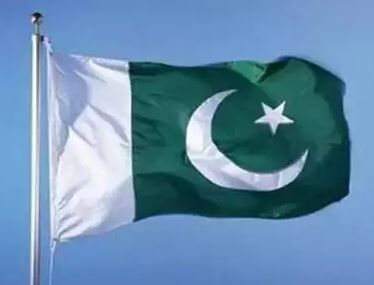Reducing investment profit rates or delaying loan repayments have been promised to Pakistan by Chinese investors participating in the China-Pakistan Economic Corridor (CPEC) power projects, according to reports in the Pakistani media on Saturday.
In order to resolve a stumbling block in the negotiation of a staff-level agreement with the International Monetary Fund, Pakistani officials promised to seek concessions from Chinese investors.
A tentative agreement was reached this week between Pakistan and the International Monetary Fund on the combined seventh and eighth reviews of Pakistan’s USD 6 billion credit facility.
Following the agreement, the much-anticipated USD 1.17 billion loan tranche will be released. It has been on hold since the beginning of the year.
An investigation found that revisiting the contracts for the power plants built as part of the billion-dollar CPEC is unlikely to go away any time soon.
In June of last year, the former administration of Imran Khan committed to a similar loan obligation with the World Bank for a sum of $400 million.
Pakistan has told the World Bank that it intends to renegotiate the CPEC accords, they said. That is unlikely, though, due to the political sensitivity inherent in the process.
Due to the CPEC being a USD 60 billion flagship initiative of China’s Belt and Road Initiative, its leadership has previously ruled out revisiting these transactions.
The CPEC provides China with direct access to the Arabian Sea by connecting China’s Xinjiang region with the port of Gwadar in Balochistan.
Chinese investors had acquired loans from financial institutions in their nation to build up these factories, according to sources, and the government informed the IMF it would look into the possibilities of extending debt repayments against these loans.
An irritation in the early completion of the staff-level agreement was the IMF’s need for specific promises to lower the power generating costs and circular debt, which had climbed by an additional Rs 850 billion in the past fiscal year.
Reports said that neither the Finance Ministry nor the International Monetary Fund were able to react to the press inquiries for comment.
Non-CPEC projects’ concessions to Pakistan’s previous government have previously been related to the overdue energy payments to Chinese power plants by the International Monetary Fund (IMF). International Monetary Fund (IMF) monitors every payment made to Chinese independent power producers (IPPs) in Pakistan, which totals roughly Rs300 billion.
A total of 5,320 MW of generating capacity has been achieved by 11 Chinese IPPs, which have so far invested USD 10.2 billion. However, in a statement last month, the International Monetary Fund (IMF) denied that it had requested Pakistan to revise the terms of its CPEC IPP contracts.
The government, producers, and consumers all shared the responsibility of reviving viability, it had been said.
Concerns have been expressed by officials in Pakistan that the West would continue to pressurise them over CPEC and pursue its goals via diplomatic channels and international financial institutions. This year, Pakistan joined the International Monetary Fund (IMF) programme, and so yet, just half of the monies have been released.
A review was scheduled for March but the administration of deposed prime leader Khan enacted pricey fuel price restrictions, which threw budgetary plans and the programme off course.
